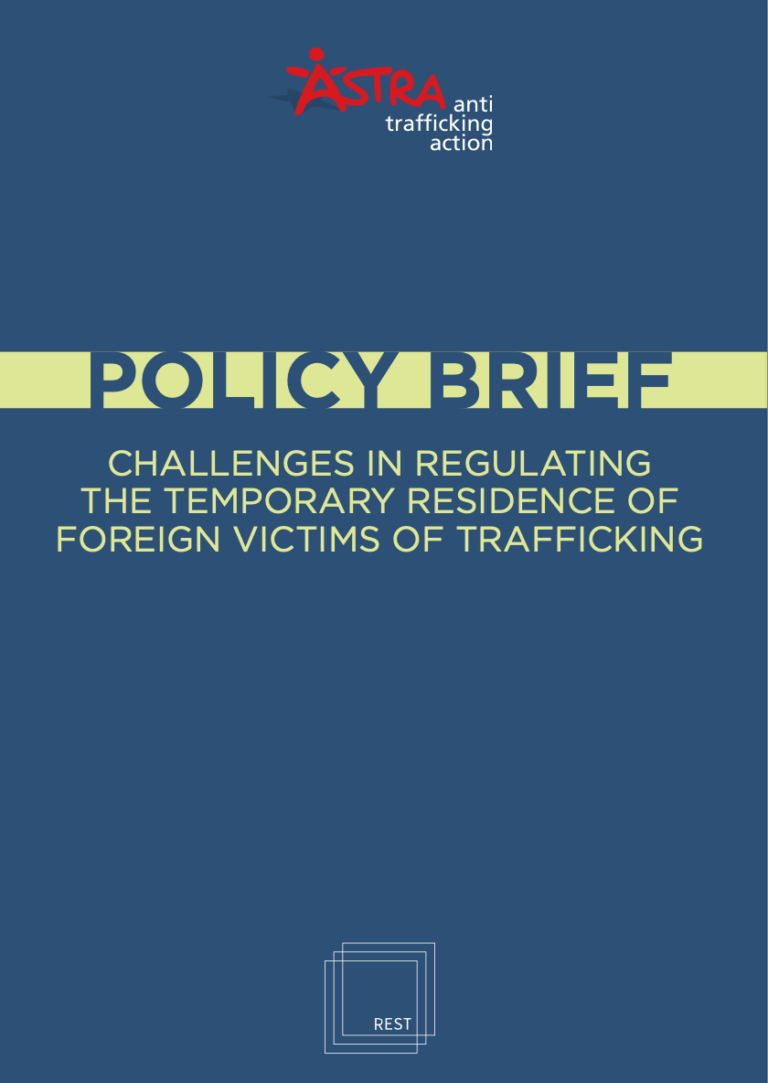Policy brief “Challenges in regulating the stay of foreign victims of human trafficking” was created within the second phase of the research conducted by ASTRA within the REST: Residence Permit project as a way of improving the protection of victims of human trafficking with the aim of identifying good practices in six countries, as well as defining the recommendations contained in the “Guide for prospective practices in the long-term protection of victims of human trafficking” edition LEFÖ – Interventionsstelle für Betroffene des Frauenhandels (LEFÖ-IBF).
At this stage, the goal was to take a step further and deepen the findings from the research, especially in the segment related to the use of legal institutes that provide the basis for regulating temporary residence of different categories of foreigners, and which can be a solution for victims of trafficking. In this regard, in addition to the temporary residence for a foreigner presumed to be a victim of human trafficking, and temporary residence for victims of human trafficking, we also focused on the asylum system and temporary residence granted for humanitarian reasons, taking into account the characteristics of current migratory flows in Serbia and recorded examples from practice.

